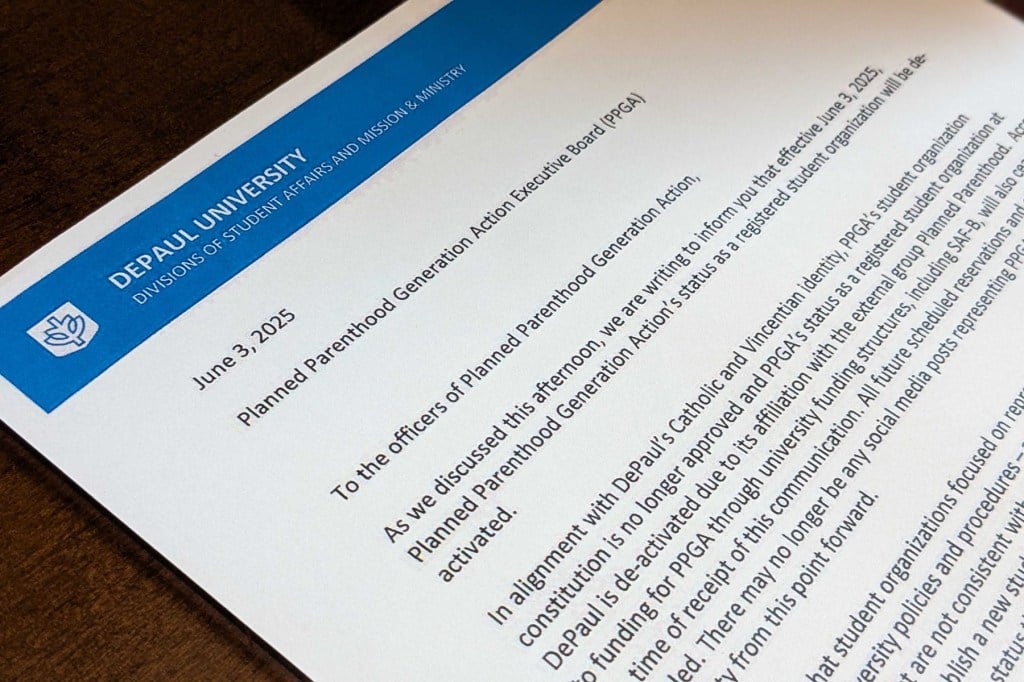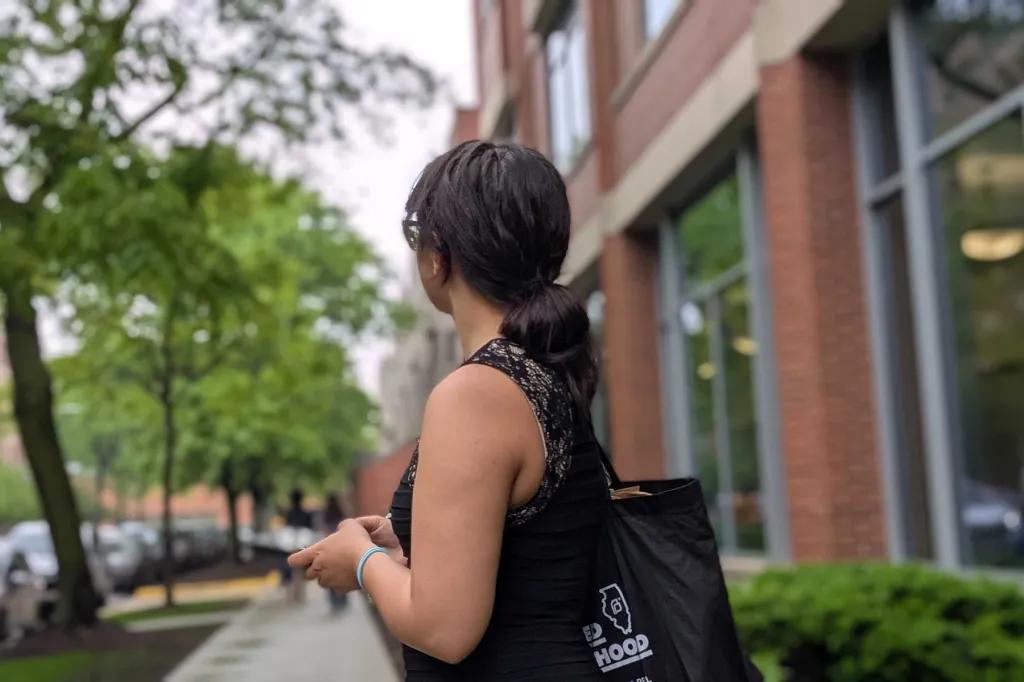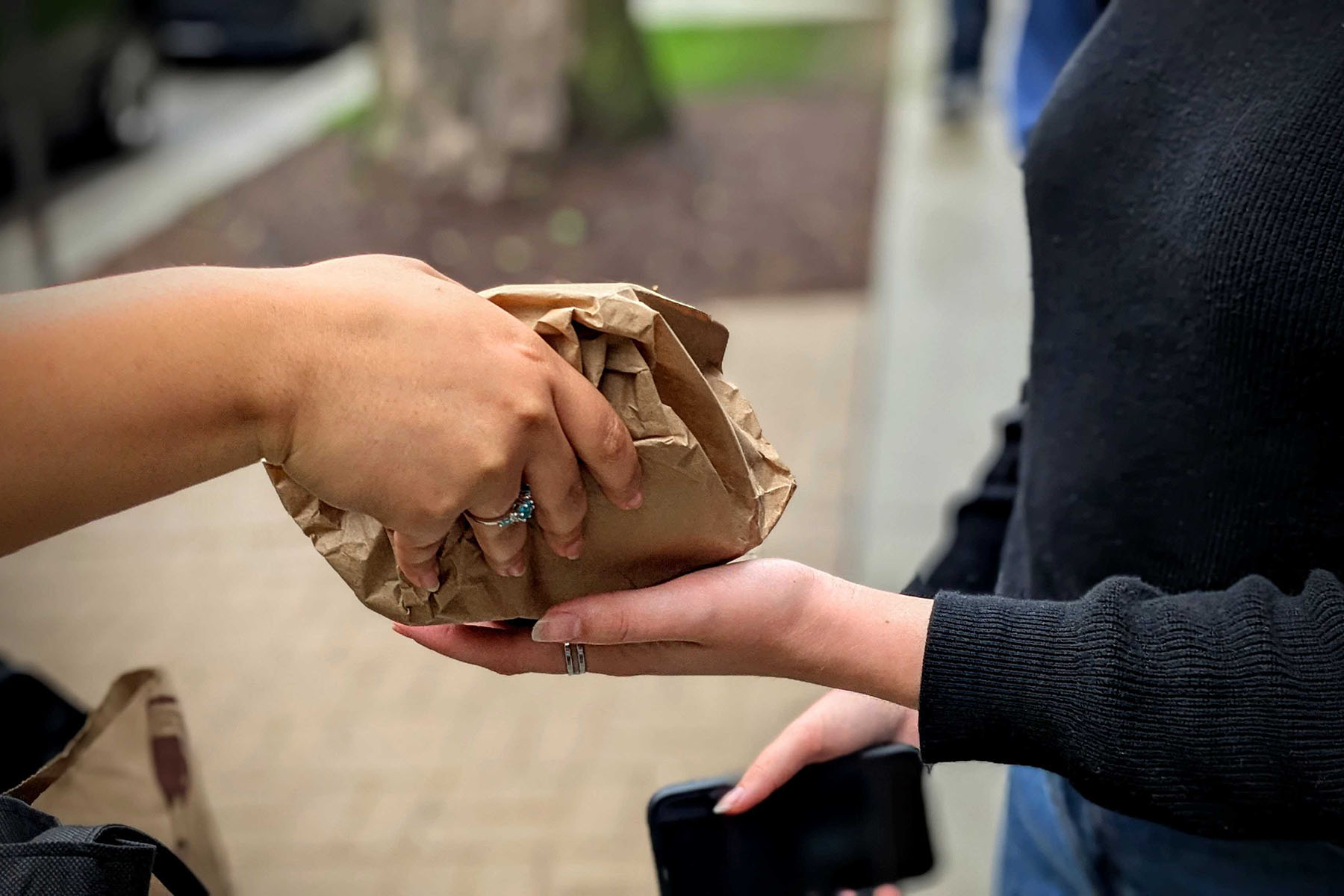Maya Roman steps out of a building on DePaul University’s campus onto a public sidewalk. She pulls a brown paper bag out of a black tote and, without opening it, hands it to a classmate with bright red hair.
“As long as the distribution happens on public property, it doesn’t violate DePaul’s guidelines,” Roman said on a spring day in the middle of finals week.
The bag does not hide drugs or booze — just a few pink- and blue-wrapped condoms and emergency contraception. DePaul has long banned the distribution of any kind of birth control on campus, deeming it “inappropriate health material” that goes against the school’s Catholic identity.
But, for the last three years, a group of students who call themselves the “Womb Service,” has run a contraceptive delivery network for their classmates at locations just off campus. Last month, without warning, university officials revoked the group’s status as a student organization, taking away their ability to meet or advertise on campus.
A DePaul spokesperson said the university supports student dialogue on reproductive health, but does not permit groups that are affiliated with organizations that go against the university’s Catholic mission.
Roman said the decision was made because the group is affiliated with the political side of Planned Parenthood, a national nonprofit that provides sexual and reproductive health care and education. Planned Parenthood, which donates contraceptives and other supplies to the students, has been a lightning rod for the movement against abortion rights.

Roman said DePaul is reacting to the Trump administration’s pressure on campus leaders to fall in line with its conservative agenda. She called DePaul’s action and its ban on contraceptive distribution dangerous.
But the “Womb Service” is continuing on, careful to make deliveries near campus instead of on it.
College-age students are the most vulnerable to unintended pregnancy, according to the Guttmacher Institute, a research and policy organization focused on reproductive health. Roman said unplanned pregnancy can derail college students — especially if they are from low-income families.
“You’re less likely to be able to complete your degree,” Roman said. “So it impacts not just the next nine months — it impacts your entire livelihood forever.”
To help students avoid this outcome, other schools put out bowls of free condoms at their health centers and dorms — or even offer Plan B emergency contraception vending machines. Roman had to find another way.
Through the “Womb Service,” students can confidentially request supplies like condoms, emergency contraception, dental dams and pregnancy tests using an online form. They meet volunteers at one of five locations near DePaul’s Lincoln Park or downtown campuses.
Roman said the group gets as many as 25 orders per week.
“College campuses are supposed to be a safe place for you to explore who you are as an adult … and with the way colleges and universities are essentially cowering, individuals are left scrambling to fill in those links and fill in those gaps,” Roman said.
Roman, who is 22, first got fired up about reproductive rights in middle school.
“The sexual education at [Chicago Public Schools] was just really bad,” she said, explaining the curriculum used scare tactics about sexually transmitted diseases to encourage abstinence instead of teaching students about their bodies and safe sex.
“My mom’s a nurse, so … in middle school while I was getting the public education that was, respectfully, abysmal my mom would have this little book, and she would be like, ‘Go through this … It’s okay to ask questions about what’s happening with your body.’”
Maya worried about her friends who weren’t getting this information from school or family. In high school, she found out Planned Parenthood offers free materials on sexual health and wellness.
“I would take that, and I would go to my friend groups and be like, ‘This is what you need,’” Roman said.

When she arrived at DePaul, she quickly recognized the challenge of both the contraceptive ban and the wide variation in her classmates’ previous sexual education.
“It was everything from, ‘I didn’t get any,’ all the way up to, ‘I had the most comprehensive sexual education you could get while being in the United States,’” she said. “That’s problematic for people who are now starting to explore their sexual identities. This is the prime time for it.”
In addition to the Womb Service, Roman’s network runs “Pillow Talks”: mini educational sessions about sexual health and wellness topics.
Demand for these resources has only grown, Roman said, but it’s been hard to keep up. All of the volunteers teaching these sessions or making deliveries are students like Roman. On top of coordinating the Womb Service, she has to go to class, study and work two jobs to pay for school.
DePaul’s decision to revoke the organization’s ability to meet and operate on campus will make recruiting more student volunteers and providing its services more difficult.
Roman said she and other members of the group have only been following the Vincentian values upheld by DePaul, which emphasize the use of critical thinking and knowledge for the benefit of the community: “Why will you not put in that same kind of work with us, with the people you’re supposed to protect?”
WBEZ partners with Open Campus on higher education coverage.






